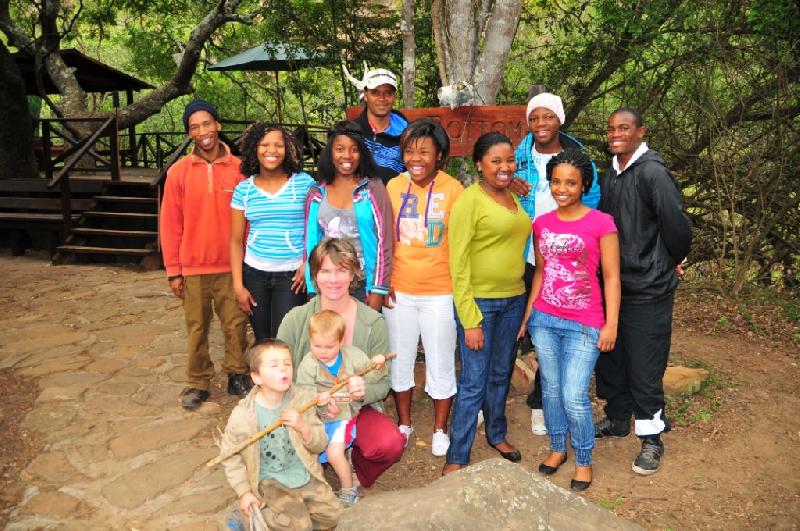
Last year, several Grade 10 learners from Mary Waters Secondary School in Grahamstown indicated that they would like to go on a hike to experience more of the wonders of nature. As a result these learners, together with facilitators Dr Michelle Cocks, a senior research officer from the Rhodes Institute of Social and Economic Research (ISER), Tony Dold from the Selmar Schonland Herbarium, and Mluleki Nkosi and Nkosana Yeye from the Mobile Science Lab, celebrated Heritage Day by hiking through the pristine thicket at Assegaai Trails near Salem.
The walk was followed by a “show-and-tell” competition where each learner presented a story about an object collected along the walking trail. The winner told how members of her church indicated their affiliation by placing a special stone at the entrance to the home. The second prize winner told of the use of cow-dung and Aloe sap to polish floors.
After the much-anticipated braai, a night walk in complete silence (a first-time experience for most) resulted in the learners experiencing the joy of silence and a bat flying overhead. Other highlights of the walk included seeing the imula plant, which is used to make traditional Xhosa mead called iqhilika (Trichodiadema intonsum), as well as a family of intlekabafazi birds (Red-billed Wood-Hoopoe).
It has been shown that contemporary rural and urban South Africans find great cultural and spiritual value in nature and its products, especially as many traditional cultural practices use wild plants on a daily basis.
The Inkcubeko Nendalo Bio-Cultural Diversity Conservation Programme was developed out of the recognition that overexploitation of natural resources threatens not only biodiversity, but also indigenous knowledge systems and ultimately South Africa’s cultural heritage.
Inkcubeko Nendalo started in 2009 and is run through the Institute for Social and Economic Research (ISER). The programme is managed by Dr Michelle Cocks and Mr Tony Dold, while two part-time facilitators are employed to assist with the delivery of the course content to Grade 10 learners in seven of the formerly disadvantaged schools in Grahamstown. To date four lessons have been developed, one delivered in each term of the year to approximately 700 learners each term. The last lesson of the year includes a field excursion to the forest.
It is a well documented fact that when indigenous communities lose their cultural heritage in the form of peoples' customs, values and indigenous knowledge, the youth often become a lost generation and turn to anti-social behaviour. It is therefore important to implement programmes that enable children and young people to recapture their cultural knowledge and revive their indigenous self-image so that they may become leaders that contribute to a more peaceful, responsible, engaged and sustainable global future.
